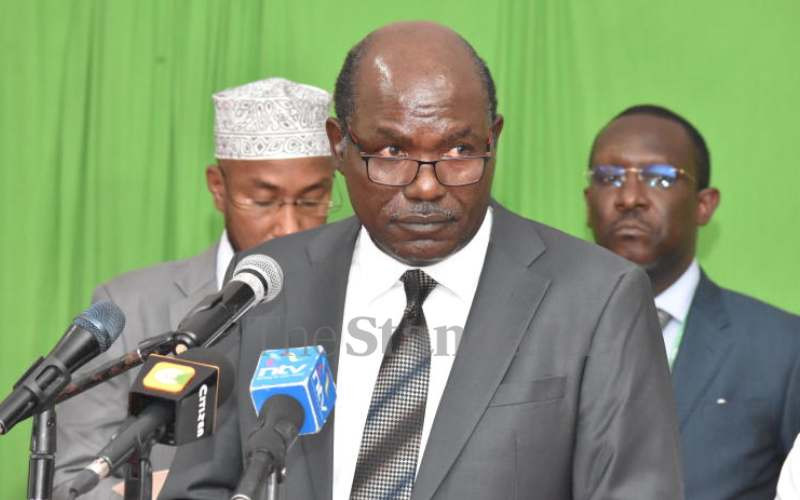×
The Standard e-Paper
Smart Minds Choose Us

The revelation by the electoral agency that the August 9 elections will be conducted without a physical voter register has created the latest political fodder.
In what will be a shift from tradition, the Independent Electoral and Boundaries Commission has announced that it would only rely on a digital register to serve the 22.1 million voters and avoid manipulation of the polling exercise.